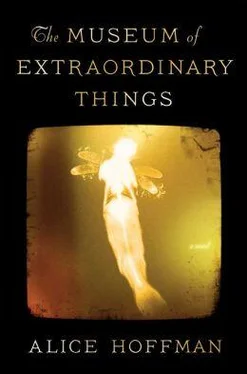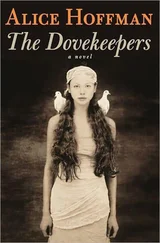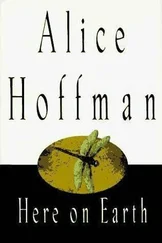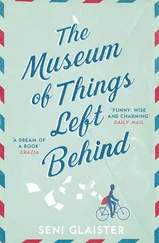Electricity was everywhere, snaking through Brooklyn, turning night into day. Its power was evident in a showing made by electrocuting a poor elephant named Topsy, who had turned on a cruel, abusive trainer. I was not yet ten when Edison planned to prove that his form of electricity was safe, while declaring that his rival, Westinghouse, had produced something that was a danger to the world. If Westinghouse’s method could kill a pachyderm, what might it do to the common man? I happened to be there on that day, walking home from the market with our housekeeper, Maureen. There was a huge, feverish crowd gathered, all waiting to see the execution, though it was January and the chill was everywhere.
“Keep walking,” Maureen said, not breaking her stride, pulling me along by my arm. She had on a wool coat and a green felt hat, her most prized possession, bought from a famed milliner on Twenty-third Street in Manhattan. She was clearly disgusted by the bloodthirsty atmosphere. “People will disappoint you with their cruelty every time.”
I wasn’t so sure Maureen was right, for there was compassion to be found among the crowd as well. I had spied a girl on a bench with her mother. She was staring at poor Topsy and crying. She appeared to be keeping a vigil, a soulful little angel with a fierce expression. I, myself, did not dare to show my fury or indulge in my true emotions. I wished I might have sat beside this other girl, and held her hand, and had her as my friend, but I was forced away from the dreadful scene. In truth, I never had a friend of my own age, though I longed for one.
All the same, I loved Brooklyn and the magic it contained. The city was my school, for although compulsory education laws had gone into effect in 1894, no one enforced them, and it was easy enough to escape public education. My father, for instance, sent a note to the local school board stating I was disabled, and this was accepted without requirement of any further proof. Coney Island then was my classroom, and it was a wondrous one. The parks were made of papier-mâché, steel, and electricity, and their glow could be seen for miles, as though our city was a fairyland. Another girl in my constrained circumstances might have made a ladder out of strips torn from a quilt, or formed a rope fashioned of her own braided hair so she might let herself out the window and experience the enchantment of the shore. But whenever I had such disobedient thoughts, I would close my eyes and tell myself I was ungrateful. I was convinced that my mother, were she still alive, would be disappointed in me if I failed to do as I was told.

My father’s museum employed a dozen or more living players during the season. Each summer the acts of wonder performed in the exhibition hall several times a day, in the afternoon and in the evenings, each displaying his or her own rare qualities. I was not allowed to speak to them, though I longed to hear the stories of their lives and learn how they came to be in Brooklyn. I was too young, my father said. Children under the age of ten were not allowed inside the museum, owing to their impressionable natures. My father included me in this delicate group. If one of the wonders was to pass I was to lower my eyes, count to fifty, and pretend that person didn’t exist. They came and went over the years, some returning for more seasons, others vanishing without a word. I never got to know the Siamese twins who were mirror images of each other, their complexions veined with pallor, or the man with a pointed head, who drowsed between his performances, or the woman who grew her hair so long she could step on it. They all left before I could speak my first words. My memories were of glances, for such people were never gruesome to me, they were unique and fascinating, and terribly brave in the ways they revealed their most secret selves.
Despite my father’s rules, as I grew older I would peer down from my window in the early mornings, when the employees arrived in the summer light, many wearing cloaks despite the mild weather, to ensure they would not be gawked at, perhaps even beaten, on their way to their employment. My father called them wonders, but to the world they were freaks. They hid their features so that there would be no stones flung, no sheriff’s men called in, no children crying out in terror and surprise. In the streets of New York they were considered abominations, and because there were no laws to protect them, they were often ill used. I hoped that on our porch, beneath the shade of the pear tree, they would find some peace.
My father had come to this country from France. He called himself Professor Sardie, though that was not in fact his name. When I asked what his given name had been, he said it was nobody’s business. We all have secrets, he’d told me often enough, nodding at my gloved hands.
I believed my father to be a wise and brilliant man, as I believed Brooklyn to be a place not unlike heaven, where miracles were wrought. The Professor had principles that others might easily call strange, his own personal philosophy of health and well-being. He had been pulled away from magic by science, which he considered far more wondrous than card tricks and sleight of hand. This was why he had become a collector of the rare and unusual, and why he so strictly oversaw the personal details of our lives. Fish was a part of our daily nourishment, for my father believed that we took on the attributes of our diet, and he made certain I ate a meal of fish every day so my constitution might echo the abilities of these creatures. We bathed in ice water, good for the skin and inner organs. My father had a breathing tube constructed so that I could remain soaking underwater in the claw-foot tub, and soon my baths lasted an hour or more. I had only to take a puff of air in order to remain beneath the surface. I felt comfortable in this element, a sort of girlfish, and soon I didn’t feel the cold as others did, becoming more and more accustomed to temperatures that would chill others to the bone.
In the summer my father and I swam in the sea together each night, braving the waves until November, when the tides became too frigid. Several times we nearly reached Dead Horse Bay, more than five miles away, a far journey for even the most experienced swimmer. We continued an exercise routine all through the winter so that we might increase our breathing capacity, sprinting along the shore. “Superior health calls for superior action,” my father assured me. He believed running would maintain our health and vigor when it was too cold to swim. We trotted along the shore in the evenings, our skins shimmering with sweat, ignoring people in hats and overcoats who laughed at us and shouted out the same half-baked joke over and over again: What are you running from? You, my father would mutter. Fools not worth listening to, he told me.
Sometimes it would snow, but we would run despite the weather, for our regimen was strict. All the same, on snowy nights I would lag behind so I might appreciate the beauty of the beach. I would reach into the snow-dotted water. The frozen shore made me think of diamonds. I was enchanted by these evenings. The ebb and flow at the shore was bone white, asparkle. My breath came out in a fog and rose into the milky sky. Snow fell on my eyelashes, and all of Brooklyn turned white, a world in a globe. Every snowflake that I caught was a miracle unlike any other.

I had long black hair that I wore braided, and I possessed a serious and quiet demeanor. I understood my place in the world and was grateful to be in Brooklyn, my home and the city that Whitman himself had loved so well. I was well spoken and looked older than my age. Because of my serious nature, few would guess I was not yet ten. My father preferred that I wear black, even in the summertime. He told me that in the village in France where he’d grown up, all the girls did so. I suppose my mother, long gone, had dressed in this fashion as a young girl, when my father had first fallen in love with her. Perhaps he was reminded of her when I donned a black dress that resembled the one she wore. I was nothing like my mother, however. I’d been told she was a great beauty, with pale honey-colored hair and a calm disposition. I was dark and plain. When I looked at the ugly twisted cactus my father kept in our parlor, I thought I more likely resembled this plant, with its gray ropy stems. My father swore it bloomed once a year with one glorious blossom, but I was always asleep on those occasions, and I didn’t quite believe him.
Читать дальше













